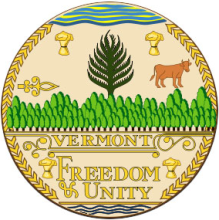New Vermont Law Bolsters Prospects for Investing in Community Broadband Networks
A new state law is on the books in Vermont that supporters expect will encourage more investor activity supporting community broadband networks.
The new law, which took effect this past June, allows for the creation of “communications union districts,” enabling towns and cities to band together to form geographic entities dedicated to establishing fiber-optic broadband networks for their area’s residents and businesses.
A New Nomenclature
While Vermont towns have been able to work cooperatively via inter-local contracts, the new law is less cumbersome and uses a governmental nomenclature more familiar to most people—the union district. The union district governance model has been used for many years throughout Vermont, including by various utilities that have multi-town operations to handle, for example, sewer and water service.
Carole Monroe; general manager of the East Central Vermont Community Fiber-Optic Network (ECFiber), a consortium of 24 Vermont communities that have banded together to provide broadband service; told our Christopher Mitchell there isn’t much practical difference for her group operating now as the East Central Vermont Telecommunications District instead of by an inter-local contract.
“But I can say that in the municipal investment markets, they’re much more familiar with the municipal utility district, whether it’s a water district or sewer district or something along those lines,” Monroe told Chris in a recent edition of Community Broadband Bits podcast. “A municipal utility district is a common language for them. Inter-local contracts, not so much.”
ECFiber Grew From Inter-Local Contract
Irvin Thomae, chairman of the EC Vermont Telecommunications District board, agreed. He noted that seven years ago the east central Vermont communities created ECFiber through an inter-local contract. “But this (the inter-local contract) was unfamiliar to investors beyond our state borders,” Thomae told us.
“We needed a structure more capable of being recognized by large institutional investors. It (the communications union district) makes it easier for community broadband networks to appeal more for large investors.”


